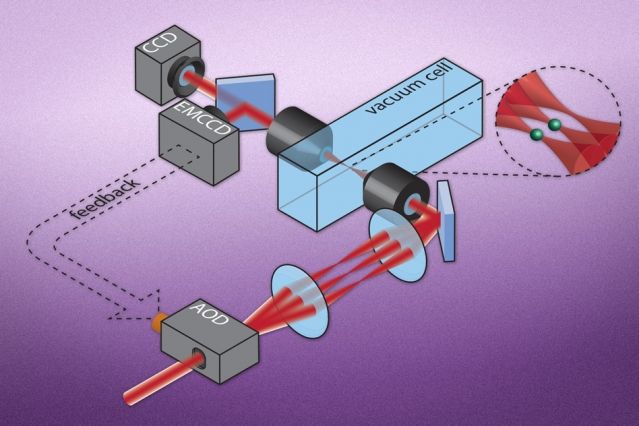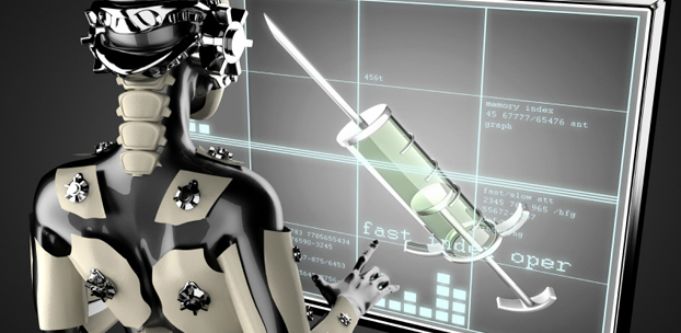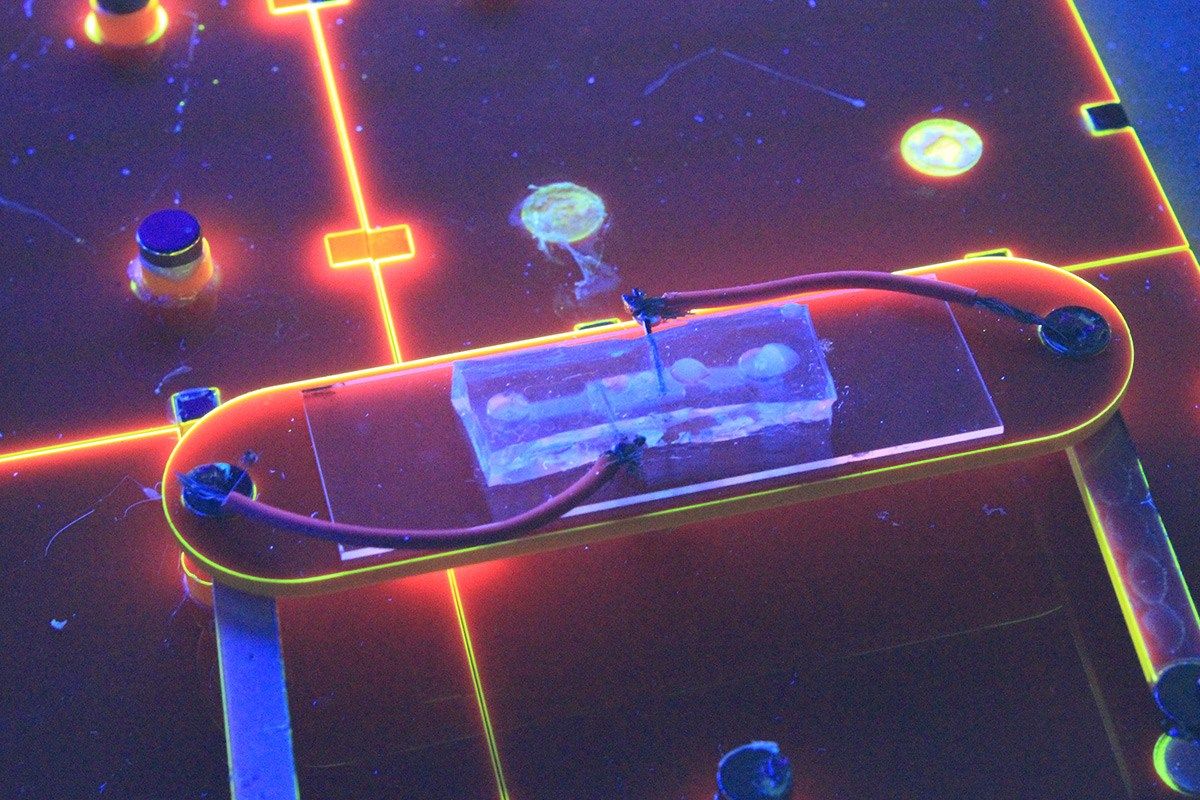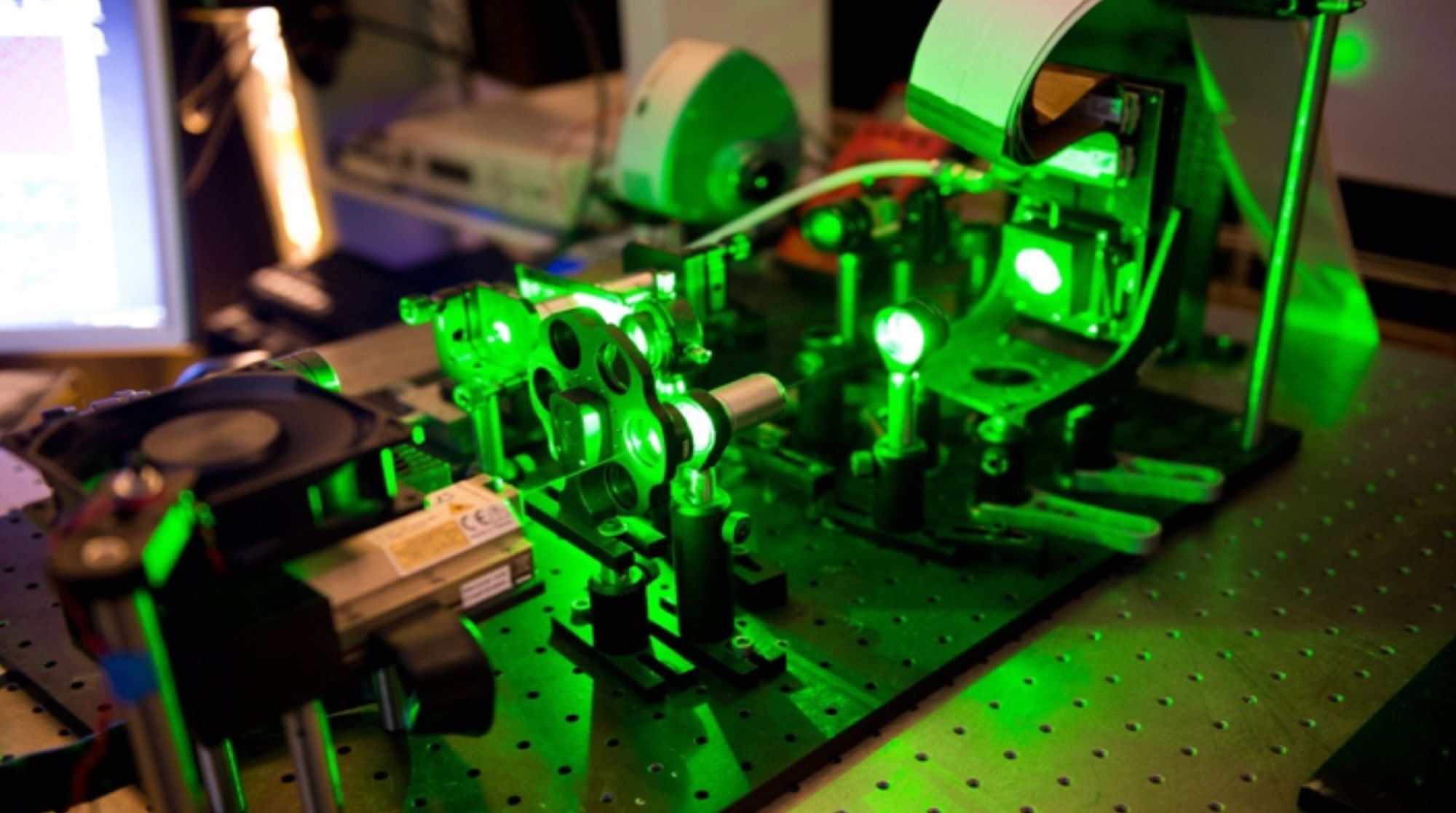
Atoms, photons, and other quantum particles are often capricious and finicky by nature; very rarely at a standstill, they often collide with others of their kind. But if such particles can be individually corralled and controlled in large numbers, they may be harnessed as quantum bits, or qubits — tiny units of information whose state or orientation can be used to carry out calculations at rates significantly faster than today’s semiconductor-based computer chips.
In recent years, scientists have come up with ways to isolate and manipulate individual quantum particles. But such techniques have been difficult to scale up, and the lack of a reliable way to manipulate large numbers of atoms remains a significant roadblock toward quantum computing.
Now, scientists from Harvard and MIT have found a way around this challenge. In a paper published in the journal Science, the researchers report on a new method that enables them to use lasers as optical “tweezers” to pick individual atoms out from a cloud and hold them in place. As the atoms are “trapped,” the scientists use a camera to create images of the atoms and their locations. Based on these images, they then manipulate the angle of the laser beams, to move individual atoms into any number of different configurations.
Continue reading “Scientists set traps for atoms with single-particle precision” »


















